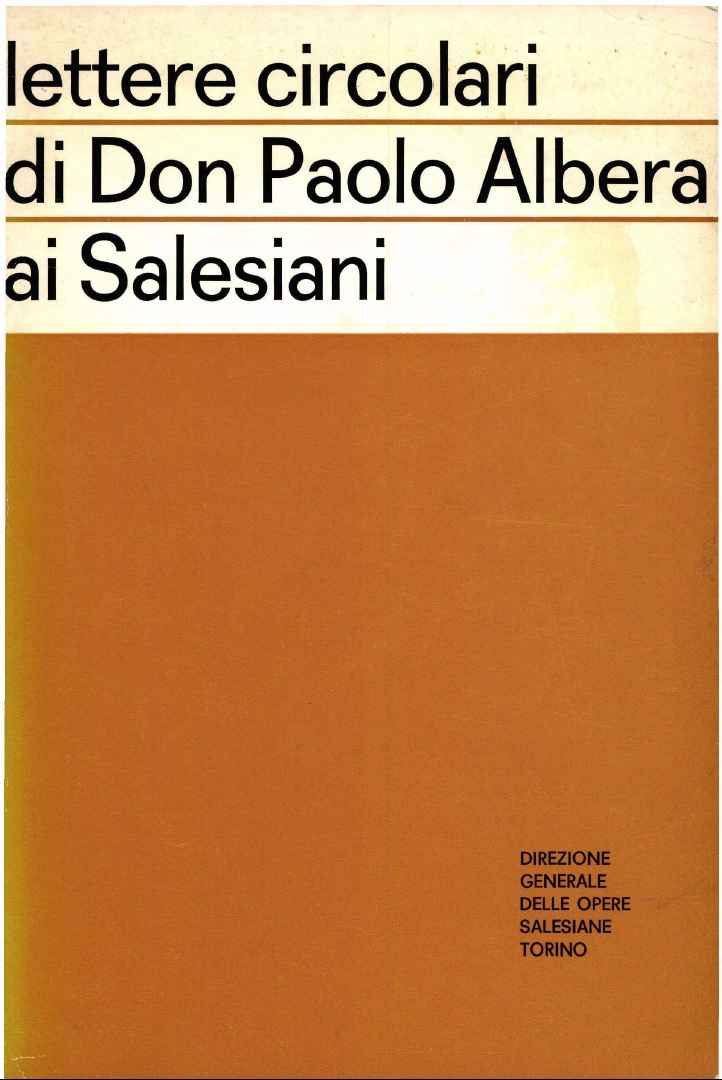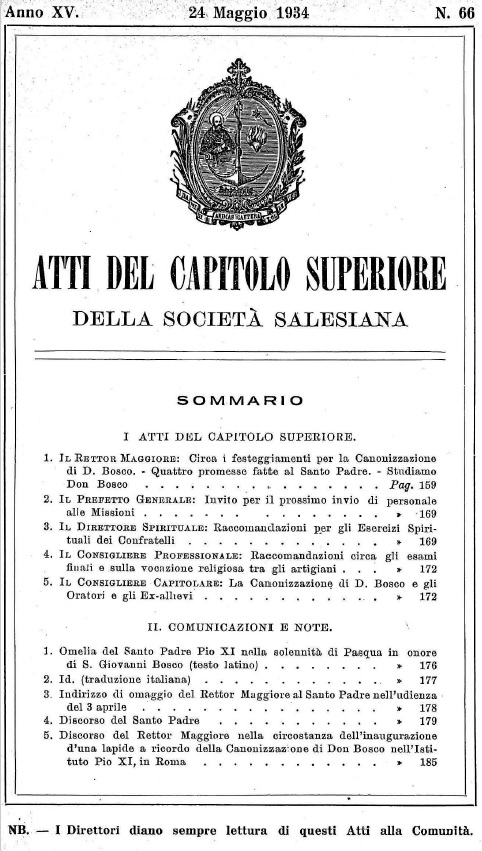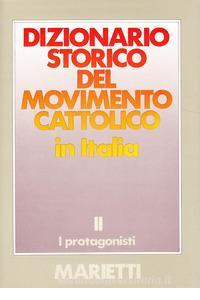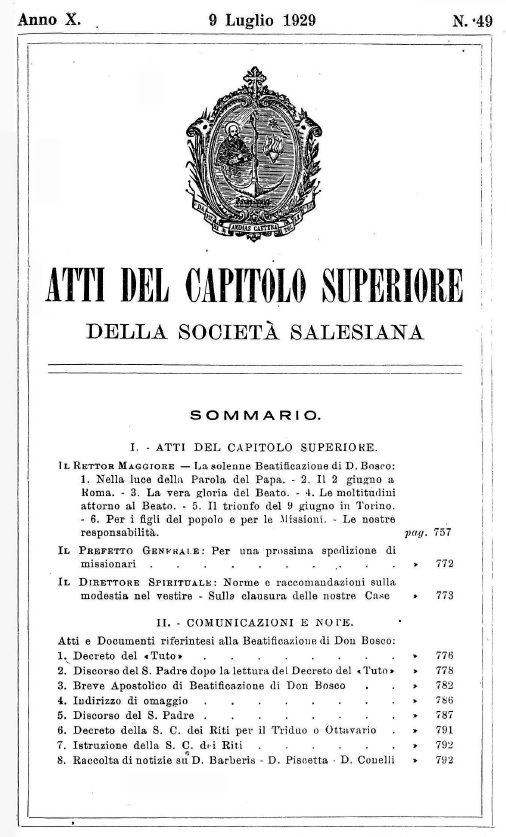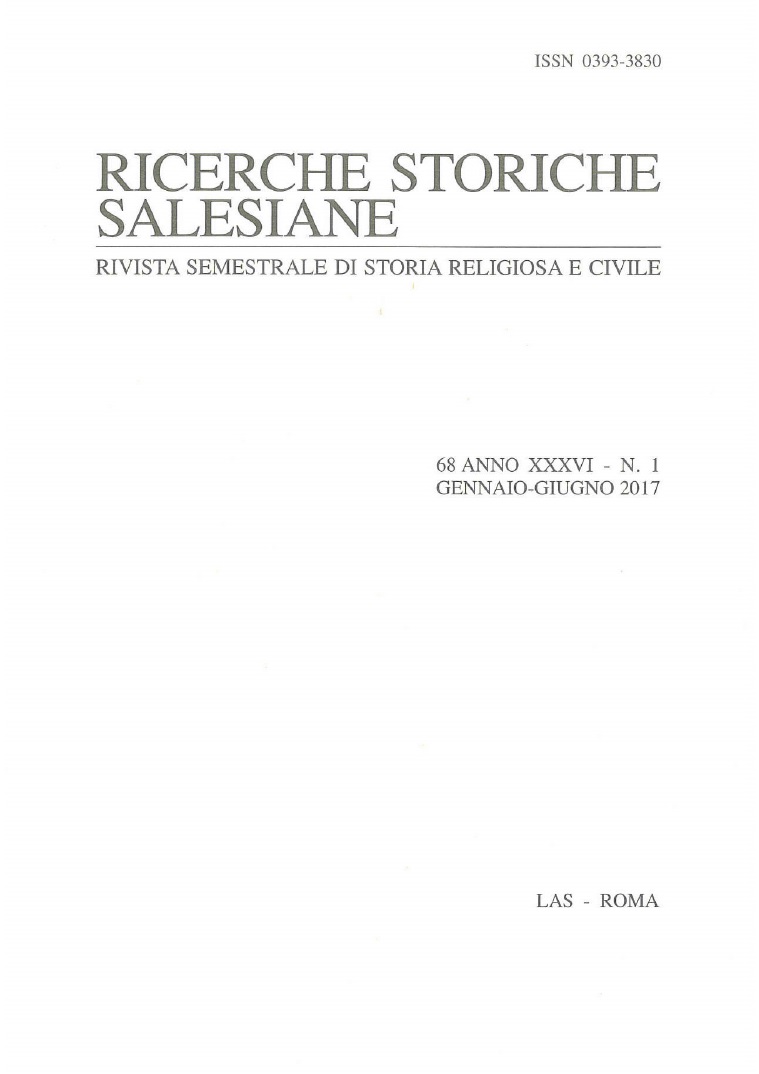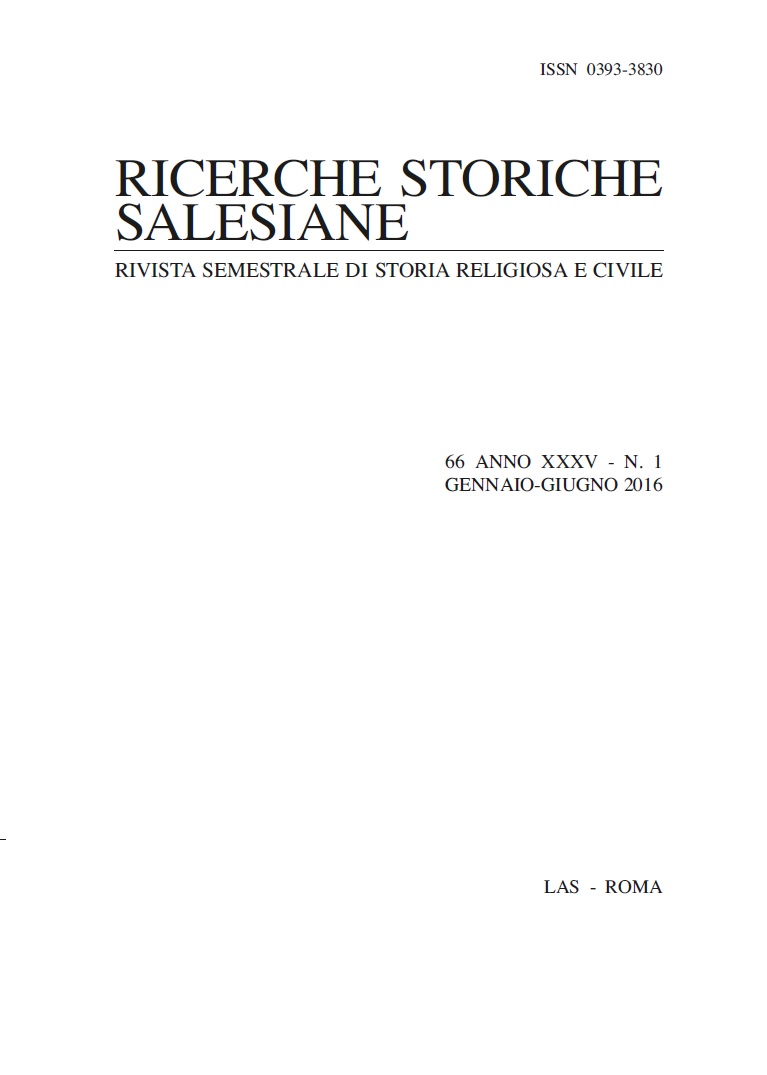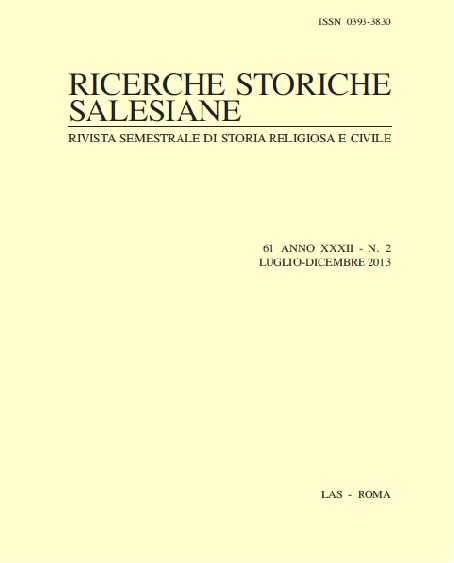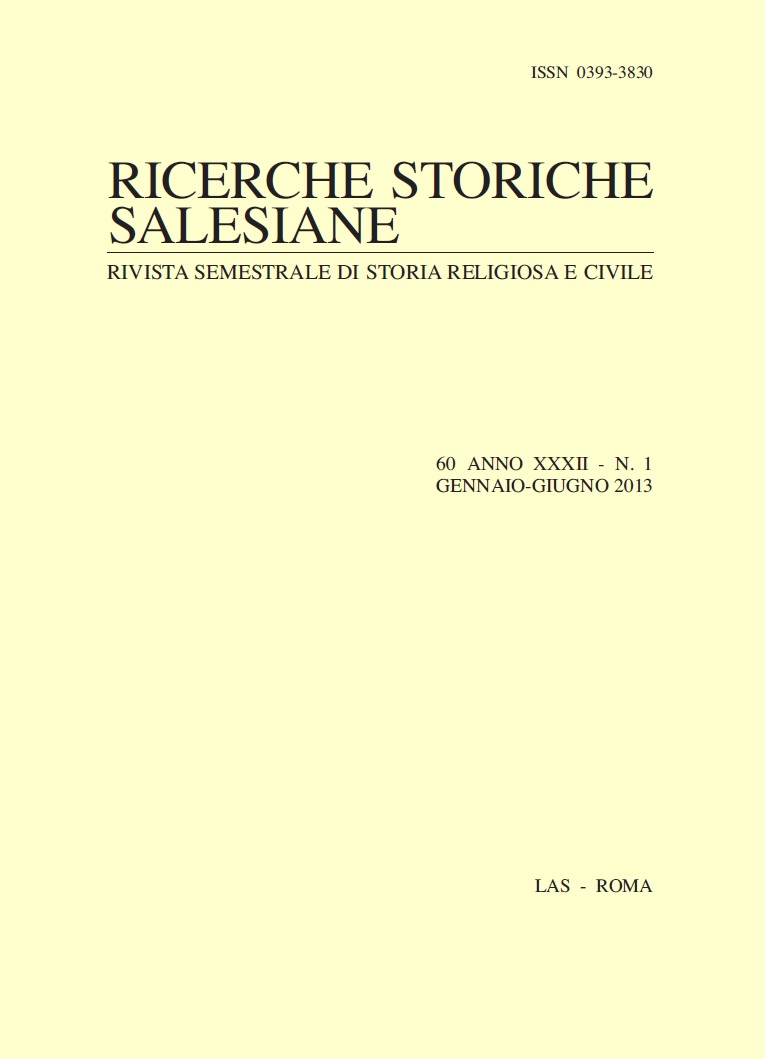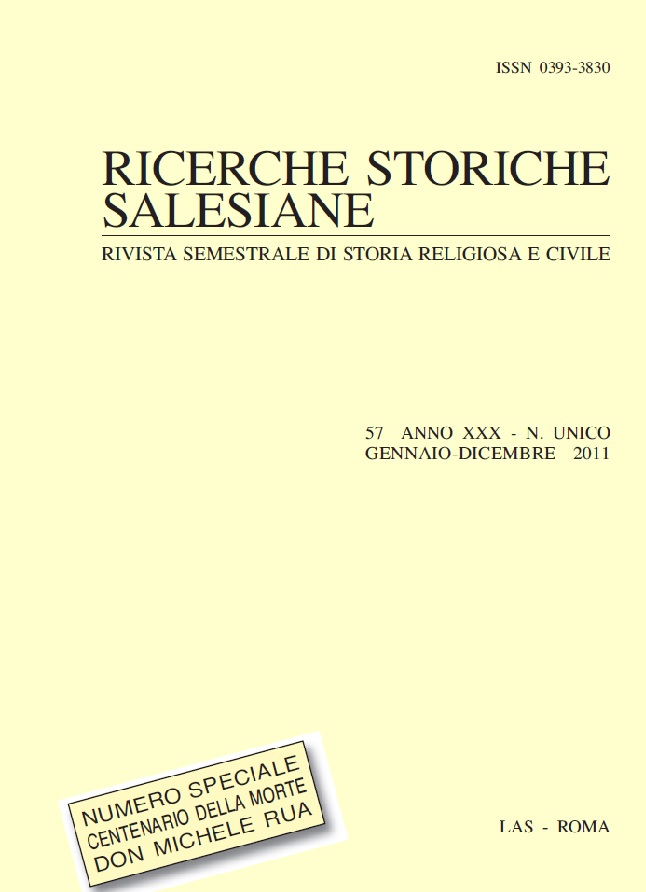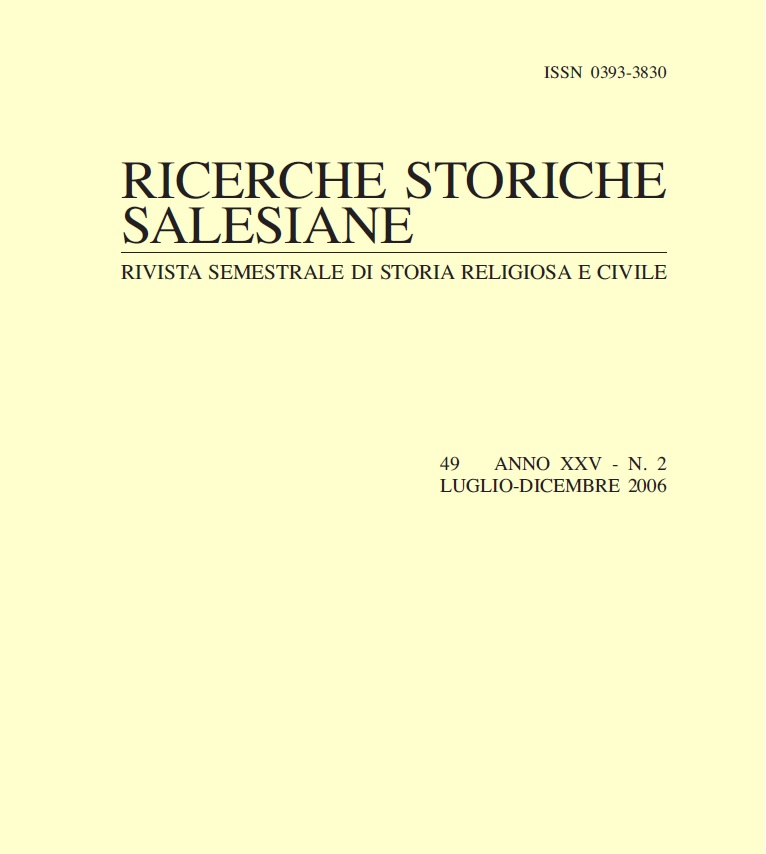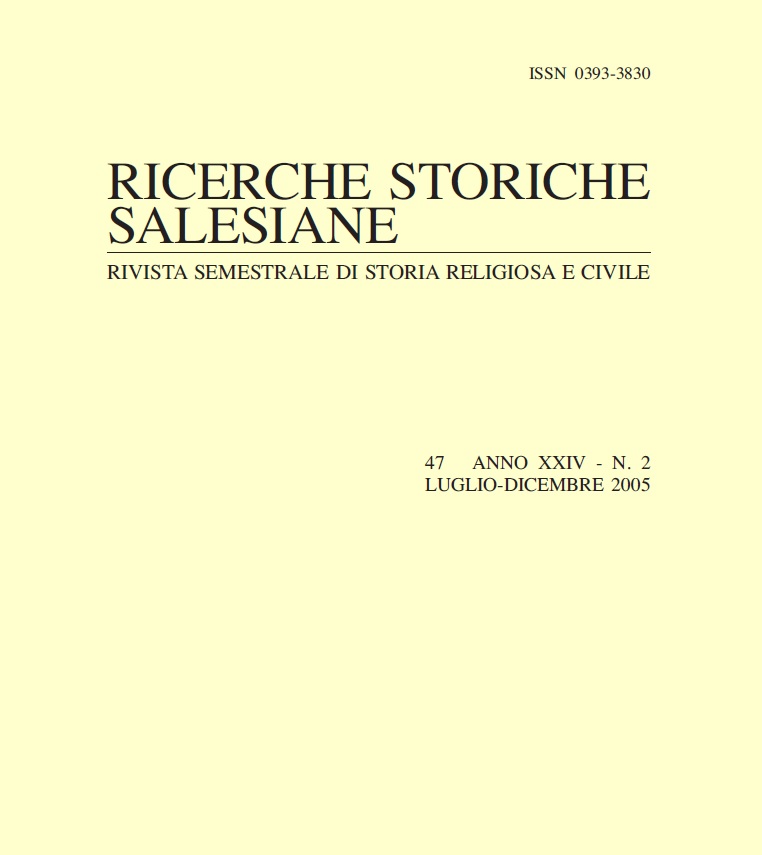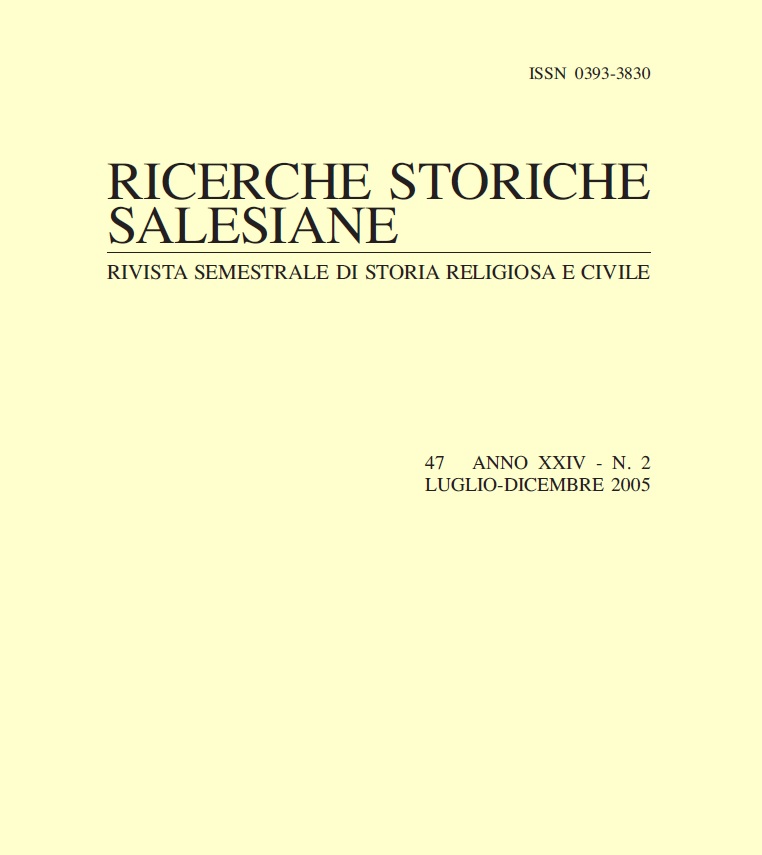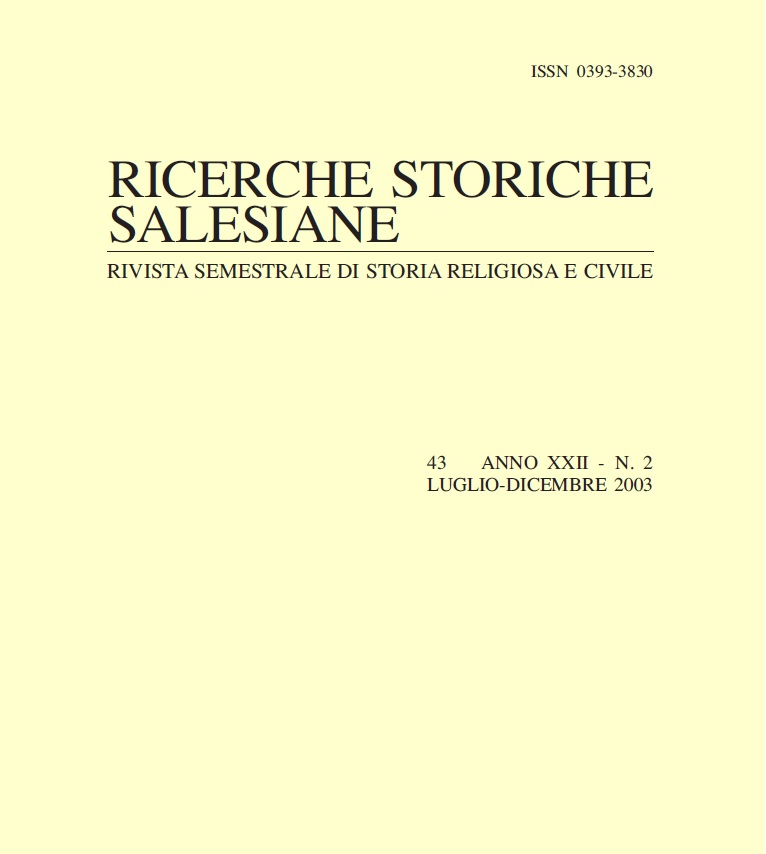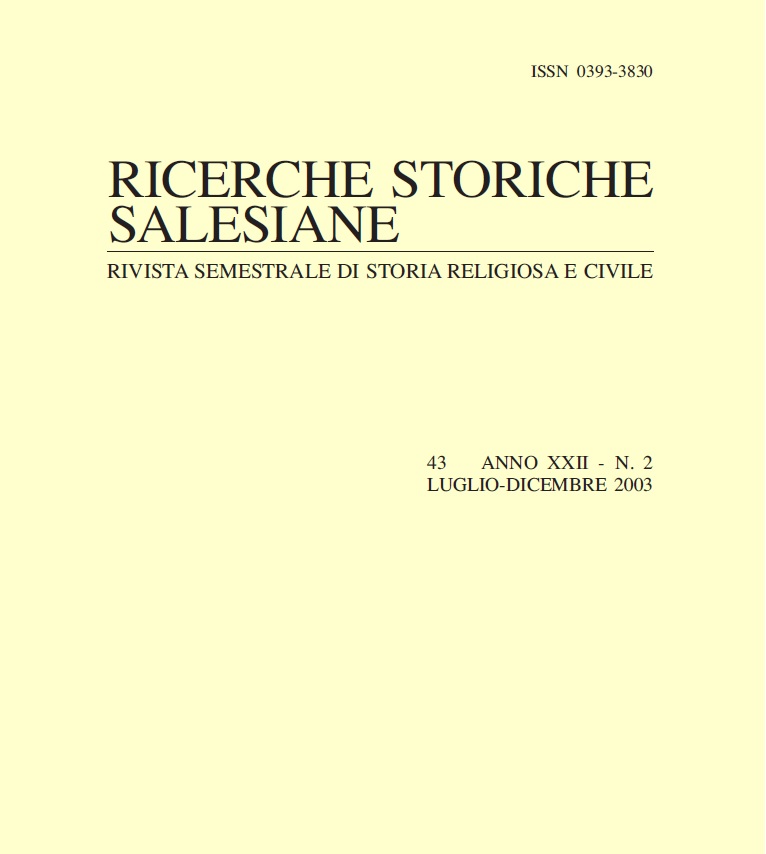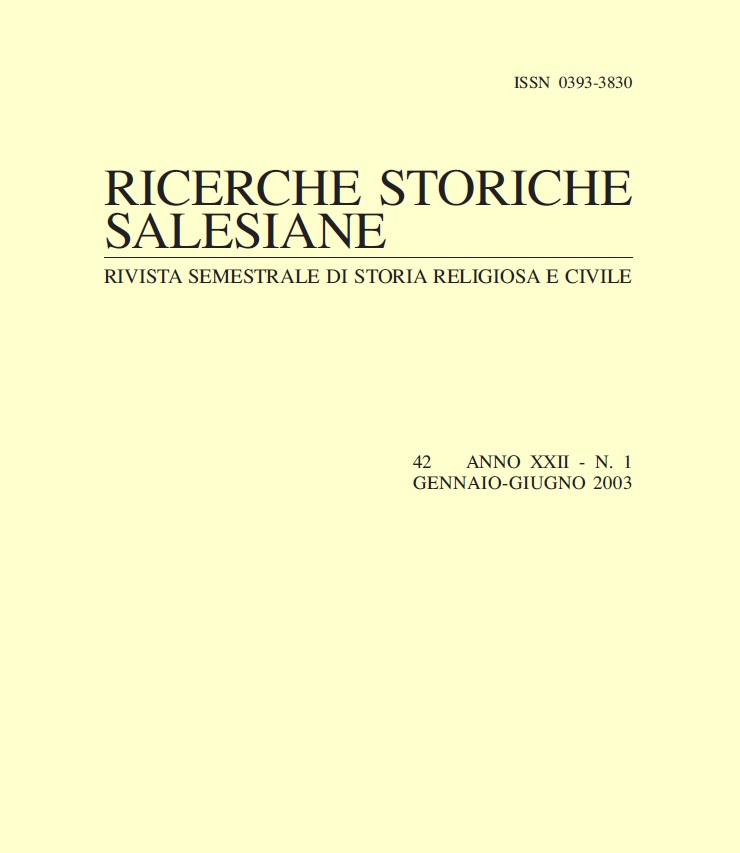La recente pubblicazione, in due volumi, da parte di Pietro Braido di una ponderosa biografia di don Bosco consente di approfondire la vita del santo educatore nel suo divenire. Prete diocesano, scelta dei giovani, intraprendenza creativa e operosità, don Bosco fondatore sono solo alcuni temi tra i tanti sviluppati in quest’opera, che consente anche di scorgere da chi e da che cosa fu influenzato don Bosco, quanto ha ricevuto e ha dato alla società civile e alla Chiesa, come cittadino, come credente e come prete, sul piano dell’azione assistenziale, della carità educativa e dell’impegno sociale.
Continue reading “Francesco Casella – Don Bosco prete dei giovani nel secolo delle libertà. A proposito di una recente opera di Pietro Braido in “Ricerche storiche salesiane”” →

